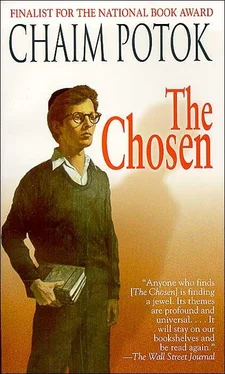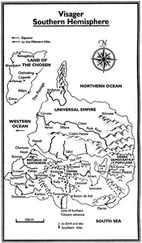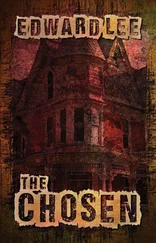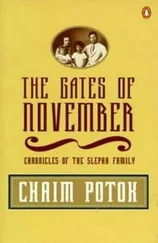'Reuven, the Master of the Universe blessed me with a brilliant son. And he cursed me with all the problems of raising him. Ah, what it is to have a brilliant son! Not a smart son, Reuven, but a brilliant son, a Daniel, a boy with a mind like a jewel. Ah, what a curse it is, what an anguish it is to have a Daniel, whose mind is like a pearl, like a sun. Reuven, when my Daniel was four years old, I saw him reading a story from a book. And I was frightened. He did not read the story, he swallowed it, as one swallows food or water. There was no soul in my four-year-old Daniel, there was only his mind. He was a mind in a body without a soul. It was a story in a Yiddish book about a poor Jew and his struggles to get to Eretz Yisroel before he died. Ah, how that man suffered! And my Daniel enjoyed the story, he enjoyed the last terrible page, because when he finished it he realized for the first time what a memory he had. He looked at me proudly and told me back the story from memory, and I cried inside my heart. I went away and cried to the Master of the Universe, "What have you done to me? A mind like this I need for a son? A heart I need for a son, a soul I need for a son, compassion I want from my son, righteousness, mercy, strength to suffer and carry pain, that I want from my SON. not a mind without a soul!"
Reb Saunders paused and took a deep, trembling breath. I tried to swallow; my mouth was sand-dry. Danny sat with his right hand over his eyes, his glasses pushed up on his forehead. He was crying silently, his shoulders quivering. Reb Saunders did not look at him.
'My brother was like my Daniel,' he went on quietly. 'What a mind he had. What a mind. But he was also not like my Daniel. My Daniel, thank God, is healthy. But for many, many years my brother was ill. His mind burned with hunger for knowledge. But for many years his body was wasted with disease. And so my father did not raise him as he raised me. When he was well enough to go off to a yeshiva to study, it was too late.
'I was only a child when he left to study in Odessa, but I stilI remember what he was able to do with his mind. But it was a cold mind, Reuven, almost cruel, untouched by his soul. It was proud, haughty, impatient with less brilliant minds, grasping in its search for knowledge the way a conqueror grasps for power. It could not understand pain, it was indifferent to and impatient with suffering. It was even impatient with the illness of its own body. I never saw my brother again after he left for the yeshiva.
He came under the influence of a Maskil in Odessa and went away to France where he became a great mathematician and taught in a university. He died in a gas chamber in AUSCHWITZ: I learned of it four years ago. He was a Jew when he died, not an observer of the Commandments, but not a convert, thank God. I would like to believe that before he died he learned how much suffering there is in this world. I hope so. It will have redeemed his soul.
'Reuven, listen to what I am going to tell you now and remember it. You are a man, but it will be years before you understand my words. Perhaps you will never understand them. But hear me out, and have patience.
'When I was very young, my father, may he rest in peace, began to wake me in the middle of the night, just so I would cry. I was a child, but he would wake me and tell me stories of the destruction of Jerusalem and the sufferings of the people of Israel, and I would cry. For years he did this. Once he took me to visit a hospital – ah, what an experience that was! – and often he took me to visit the poor, the beggars, to listen to them talk. My father himself never talked to me, except when we studied together. He taught me with silence. He taught me to look into myself, to find my own strength, to walk around inside myself in company with my soul. When his people would ask him why he was so silent with his son, he would say to them that he did not like to talk, words are cruel, words play tricks, they distort what is in the heart, they conceal the heart, the heart speaks through silence. One learns of the pain of others by suffering one's own pain, he would say, by turning inside oneself, by finding one's own soul. And it is important to know of pain, he said. It destroys our selfpride, our arrogance, our indifference toward others. It makes us aware of how frail and tiny we are and of how much we must depend upon the Master of the Universe. Only slowly, very slowly, did I begin to understand what he was saying. For years his silence bewildered and frightened me, though I always trusted him, I never hated him. And when I was old enough to understand, he told me that of all people a tzaddik especially must know of pain. A tzaddik must know how to suffer for his people, he said. He must take their pain from them and carry it on his own shoulders. He must carry it always. He must grow old before his years. He must cry, in his heart he must always cry. Even when he dances and sings, he must cry for the sufferings of his people.
'You do not understand this, Reuven. I see from your eyes that you do not understand this. But my Daniel understands it now. He understands it well.
'Reuven, I did not want my Daniel to become like my brother, may he rest in peace. Better I should have had no son at all than to have a brilliant son who had no soul. I looked at my Daniel when he was four years old, and I said to myself, How will I teach this mind what it is to have a soul? How will I teach this mind to understand pain? How will I teach it to want to take on another person's suffering? How will I do this and not lose my son, my precious son whom I love as I love the Master of the Universe Himself? How will I do this and not cause my son, God forbid, to abandon the Master of the Universe and His Commandments? How could I teach my son the way I was taught by my father and not drive him away from Torah? Because this is America, Reuven. This is not Europe. It is an open world here. Here there are libraries and books and schools. Here there are great universities that do not concern themselves how many Jewish students they have. I did not want to drive my son away from God, but I did not want him to grow up a mind without a soul. I knew already when he was a boy that I could not prevent his mind from going to the world for knowledge. I knew in my heart that it might prevent him from taking my place. But I had to prevent it from driving him away completely from the Master of the Universe. And I had to make certain his soul would be the soul of a tzaddik no matter what he did with his life.'
He closed his eyes and seemed to shrink into himself. His hands trembled. He was silent for a long time. Tears rolled slowly down alongside the bridge of his nose and disappeared into his beard. A shuddering sigh filled the room. Then he opened his eyes and stared down at the closed Talmud on the desk. 'Ah, what a price to pay… The years when he was a child and I loved him and talked with him and held him under my tallis when I prayed – "Why do you cry, Father?" he asked me once under the tallis. "Because people are suffering," I told him. He could not! understand. Ah, what it is to be a mind without a soul, what ugliness it is… Those were the years he learned to trust me and love me… And when he was older, the years I drew myself away from him… "Why have you stopped answering my questions, Father?" he asked me once. "You are old enough to look into your own soul for the answers," I told him. He laughed once and said, "That man is such an ignoramus, Father." I was angry. "Look into his soul," I said. "Stand inside his soul and see the world through his eyes. You will know the pain he feels because of his ignorance, and you will not laugh." He was bewildered and hurt. The nightmares he began to have… But he learned to find answers for himself. He suffered and learned to listen to the suffering of others. In the silence between us, he began to hear the world crying.'
Читать дальше












